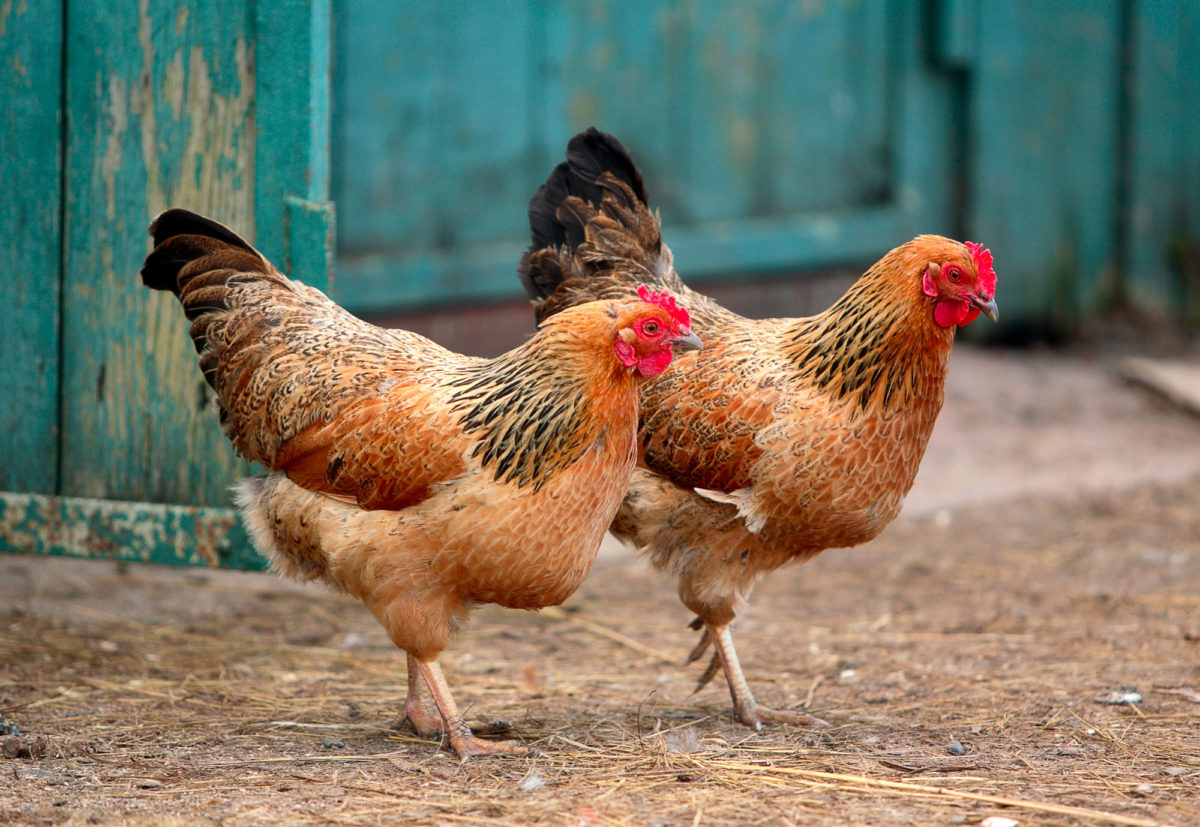Scientists have tested gene-editing techniques to identify and change parts of chicken DNA that could limit spread of bird flu, a virus that has decimated seabird populations and cost the British poultry industry more than £100 million in losses.
Reporting on this for The Independent in Britain, Lauren Gilmour says researchers at the University of Edinburgh, Imperial College London and the Pirbright Institute bred chickens using gene-editing techniques to alter the section of DNA responsible for producing the protein ANP32A.
During an infection, flu viruses hijack this molecule to replicate themselves.
Scientists found that when the ANP32A gene-edited chickens were exposed to a normal dose of the H9N2-UDL strain of avian influenza virus – commonly known as bird flu – nine out of 10 birds remained uninfected and there was no spread to other chickens.
The research team then exposed the gene-edited birds to an artificially high dose of avian influenza virus to further test their resilience.
When exposed to the high dose, half of the group – five out of 10 birds – became infected.
But the gene edit did provide some protection, with the amount of virus in the infected gene-edited chickens much lower than the level typically seen during infection in non-gene-edited chickens.
The gene edit also helped limit the onward spread of the virus to just one of four non-gene edited chickens in the same incubator.
There was no transmission to gene-edited birds.
Researchers found that in the ANP32A gene-edited birds, the virus had adapted to enlist the support of two related proteins – ANP32B and ANP32E – to replicate.
But the findings demonstrate that the single ANP32A gene edit is not robust enough for application in the production of chickens, according to the team.
To prevent the emergence of viruses that adapt to evade the gene edit and cause infection, the research team next targeted additional sections of DNA responsible for producing all three proteins – ANP32A, ANP32B and ANP32E – inside lab-grown chicken cells.
In the lab, growth of the virus was successfully blocked in cells with the three gene edits.
Bird flu is a major global threat, with a devastating impact in both farmed and wild bird populations.
Gene-editing offers a promising route towards permanent disease resistance, which could be passed down through generations, protecting poultry and reducing the risks to humans and wild birds
In rare instances, mutations in the bird flu virus allow it to infect people and cause serious illness.
Efforts to control the spread of the disease are urgently needed.
The research was funded by the UK Research and Innovation – Biotechnology and Biological Sciences Research Council, which also provides strategic funding to The Roslin Institute, and was supported by Edinburgh Innovations, the university’s commercialisation service.
Source: The Independent












